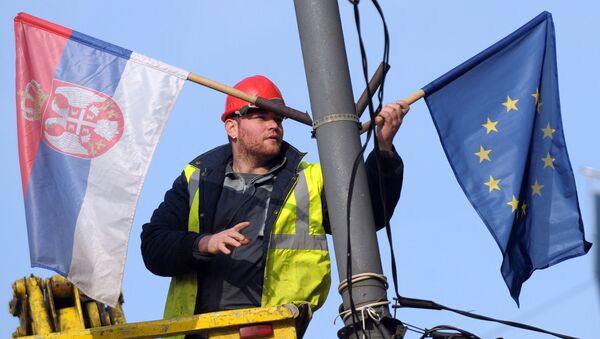As President Nikolic explained, these two conditions were relayed to him by Johannes Hahn, European Commissioner for European Neighbourhood Policy and Enlargement, during one of the latter’s visits to Belgrade, and were in fact mentioned during a joint press conference back then.
"I said in his presence that Mr Hahn told me that we won’t be able to move further until we sign a neighborly agreement with Kosovo and Metohija which, I believe, would equal the recognition of Kosovo’s independence. He also said that we won’t be able to become an EU member without conducting a joint foreign policy… Soon after that the sanctions against Russia were imposed; sanctions that we do not support but would be forced to if we were an EU member. I’m the first person to speak about these two conditions. Many in Serbia challenged my statements and claimed they’ve never heard about it, but these are the conditions that you will hear about tomorrow," the president declared.
According to Nikolic, while these demands have not yet been officially stated, "they’re being heralded by the parliaments of the countries that would ratify our accession, including the German parliament which will play a decisive role in that process."
Belgrade has previously stated on numerous occasions that Serbia won’t support the anti-Russian sanctions campaign instigated by certain Western countries.
Kosovo unilaterally proclaimed independence from Serbia in 2008 and is recognized by over 100 UN member states. Serbia, as well as Russia do not recognize Kosovo’s independence. In March 2011, Pristina and Belgrade launched EU-facilitated reconciliation talks in order to ease bilateral tensions. Since then the sides have signed a number of deals, including ones in the spheres of telecommunications and energy.


